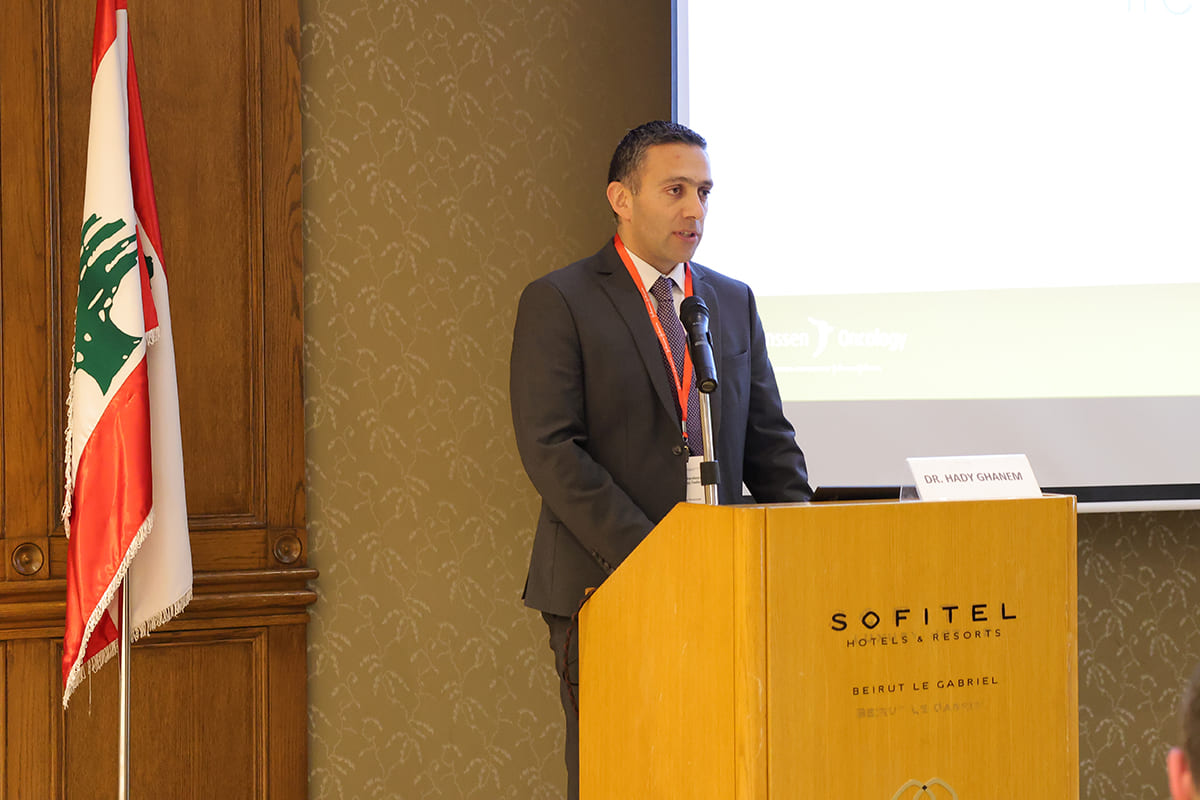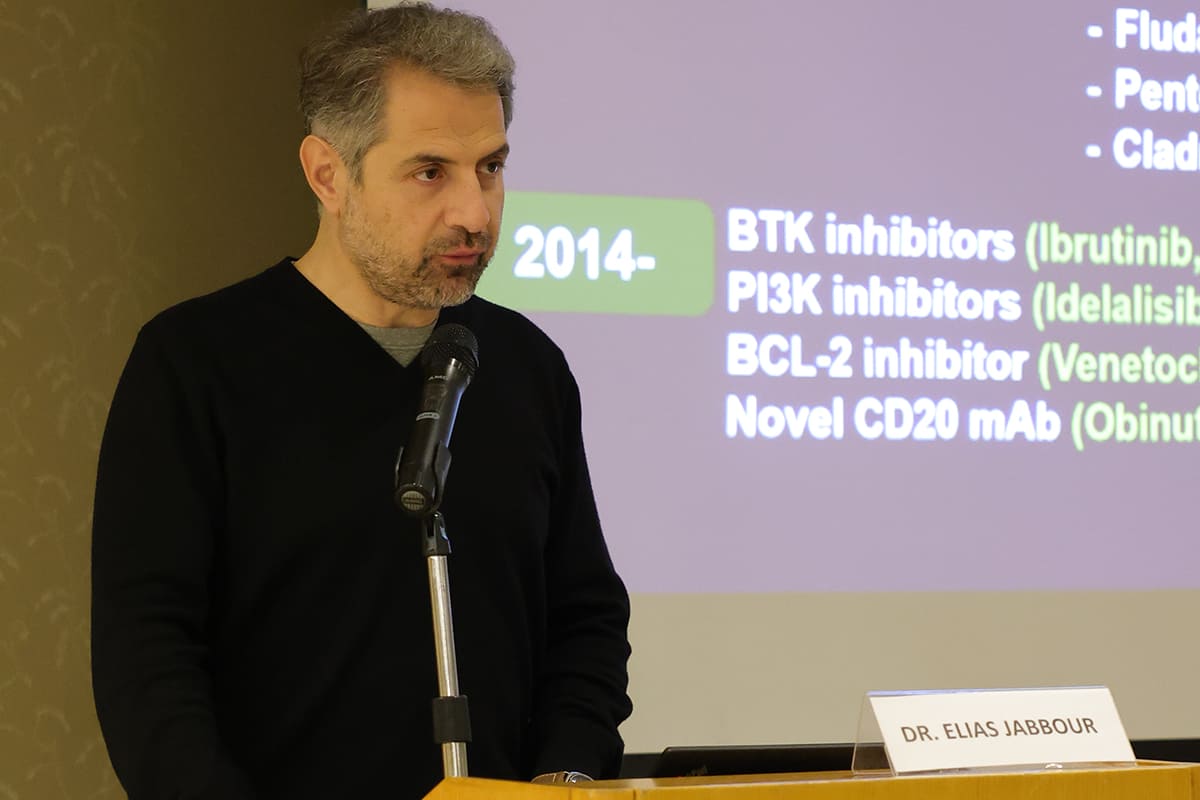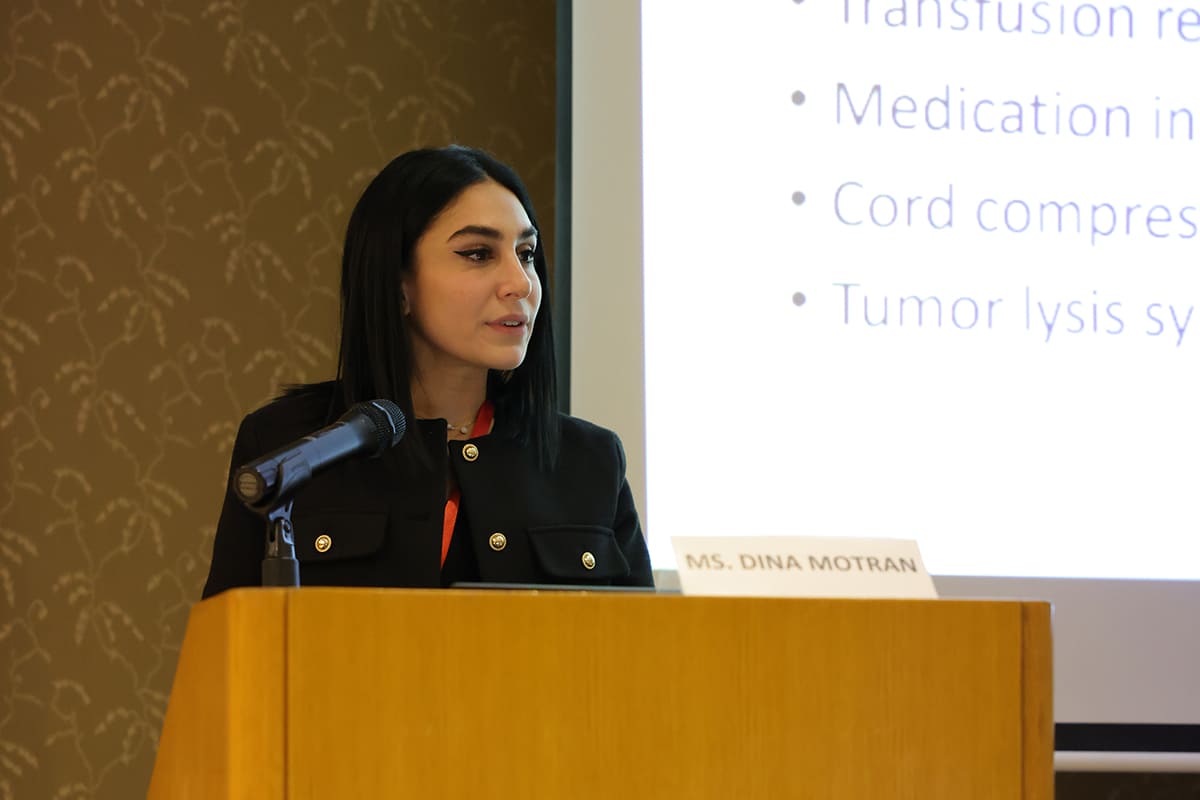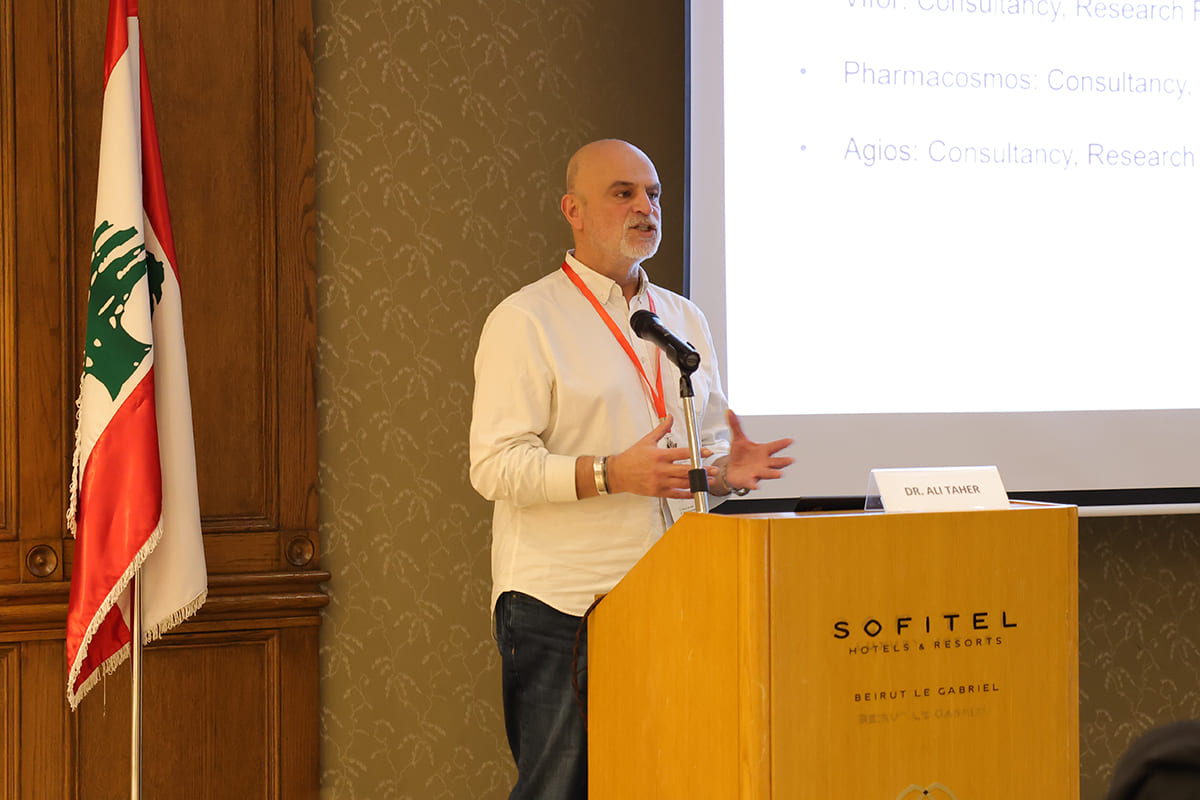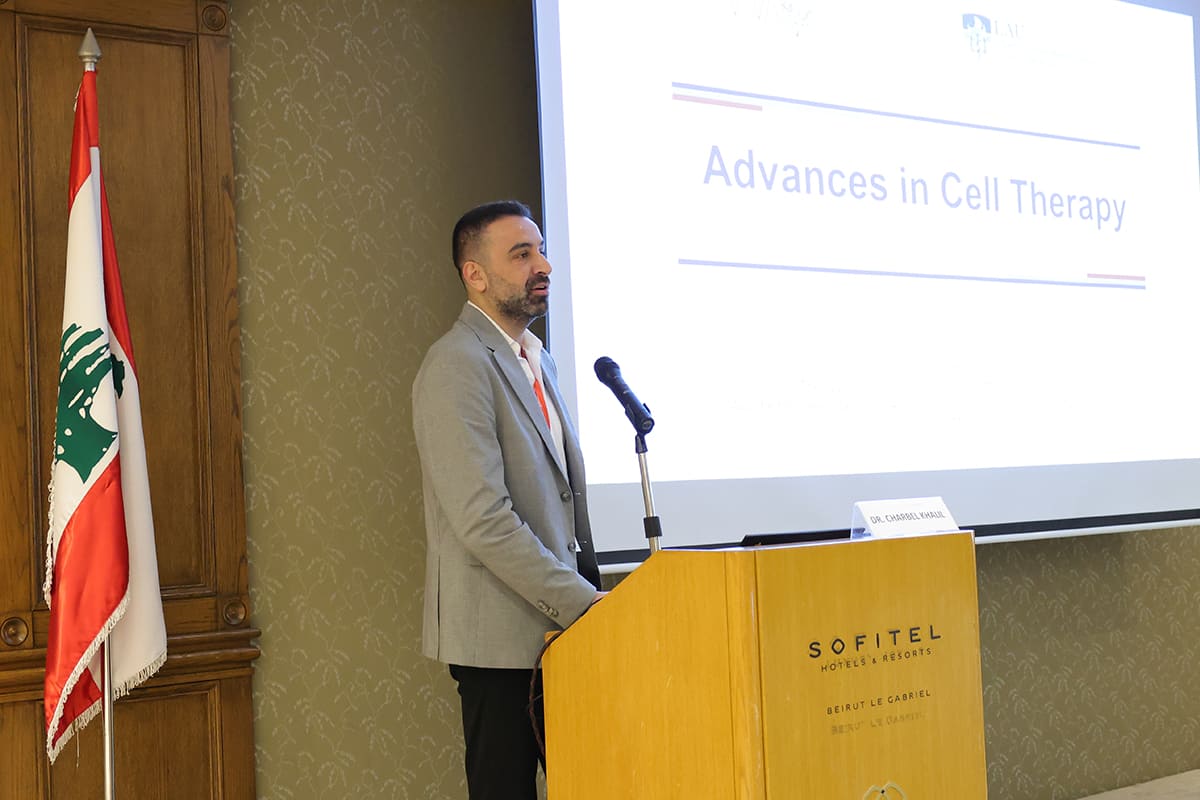Staying Current and Aligning the Latest Practices in Hematology
In its first annual conference, the hematology department funnels transformative research and knowledge to physicians, fellows, residents, medical students and nurses.
Hematology is a specialized medical field that focuses on diagnosing and managing blood disorders like anemia, sickle cell, and thalassemia, as well as more life-threatening diseases like blood cancers. It is a dynamic discipline that requires high levels of collaboration between healthcare professionals to deliver personalized therapies that ensure optimal patient care.
On February 26, international and regional specialists in the field convened for the First Comprehensive LAU Hematology Conference at Sofitel Beirut Le Gabriel to discuss a range of topics related to benign and malignant hematology and treatments, including cellular therapy.
The interdisciplinary event—a collaboration between Dr. Hady Ghanem, head of the division of Hematology-Oncology at the LAU Gilbert and Rose-Marie Chagoury School of Medicine, and Dr. Elias Jabbour, professor of medicine in the Department of Leukemia at the MD Anderson Cancer Center—Houston, Texas, served both to educate medical students, fellows, residents, nurses and medical professionals, as part of their Continuing Medical Education (CME), and connect with people outside of Lebanon and other university hospitals in the area to strengthen their teams, said Dr. Ghanem.
“Hematology is a discipline that is connected with multiple other specialties, which is why we are here today to spread awareness about it, not just among hematologists but also among family physicians, internists, etc.” noted Dr. Ghanem.
“The numbers are high in the case of blood cancers in Lebanon and very comparable to what we see in the US in terms of prevalence and incidence of the disease, from what I observed during my years there at the MD Anderson Cancer Center,” he added.
The speakers delved into novel leukemia treatments and challenging hematology cases such as CLL (chronic lymphocytic leukemia), a cancer of the blood and bone marrow, and CML (chronic myelogenous leukemia) an uncommon type of cancer of the bone marrow, emphasizing the significance of palliative care and compassionate, patient-centered methods.
Discussions touched on advancements in transformative targeted therapies and cancer management that aim to improve patients’ quality of life during and after treatment.
Dr. Jabbour, who is actively involved in developmental therapeutics research in leukemia, informed the group of the latest improvements in leukemia treatments and novel therapeutic agents, including the most recent American Society of Hematology (ASH) meeting updates on Acute Myeloid Leukemia (AML), a rare but life threatening blood and bone marrow disease. He addressed the disease’s diagnostic advancements and various treatment approaches available to date.
A comprehensive session was devoted to thalassemia—an inherited blood disorder prevalent in our region—by Dr. Ali Taher, professor of medicine at the division of hematology and oncology at the American University of Beirut Medical Center. Dr. Taher shared his extensive research and experience in the management of thalassemia patients. Speaking about his latest collaborative research, he said that the “achievement wasn’t just the extensive clinical trials we’ve conducted over the years. It’s about reducing the birth rate of thalassemia, a genetic disease, from 30 percent to zero in Lebanon through our introduction of pre-marital screening.”
Dr. Charbel Khalil, a stem cell therapist, assistant professor at LAU’s school of medicine and the latest addition to the growing hematology and oncology division, along with Dr. Renato Kunha, professor of medicine at Universidade de São Paulo presented on CAR-T treatment—also known as chimeric antigen receptor T-cell therapy—a cutting-edge approach to treating blood cancers, especially B cell lymphoma. “Manipulating stem cells is gaining more importance, and the indications to use CAR-T cell treatments are exponentially increasing,” noted Dr. Khalil.
Although the procedure is not yet available in Lebanon due to budgetary and technological limitations, Dr. Khalil outlined the progress of this innovative form of immunotherapy, which involves genetically modifying a patient’s T-cells (white blood cells) and reintroducing them into the patient’s body to enhance their ability to identify and fight cancer cells.
In a session dedicated to the role of nurses in caring for leukemia patients, Dina Motran, a registered nurse and clinical coordinator at LAU Medical Center-Rizk Hospital, highlighted the essential role of nurses in hematology and oncology in delivering personalized treatment and educational support.
The central theme echoed by the multidisciplinary speakers emphasized the importance of collaborative efforts and personalized patient care in guaranteeing safer treatments and achieving the best outcomes for patients.
